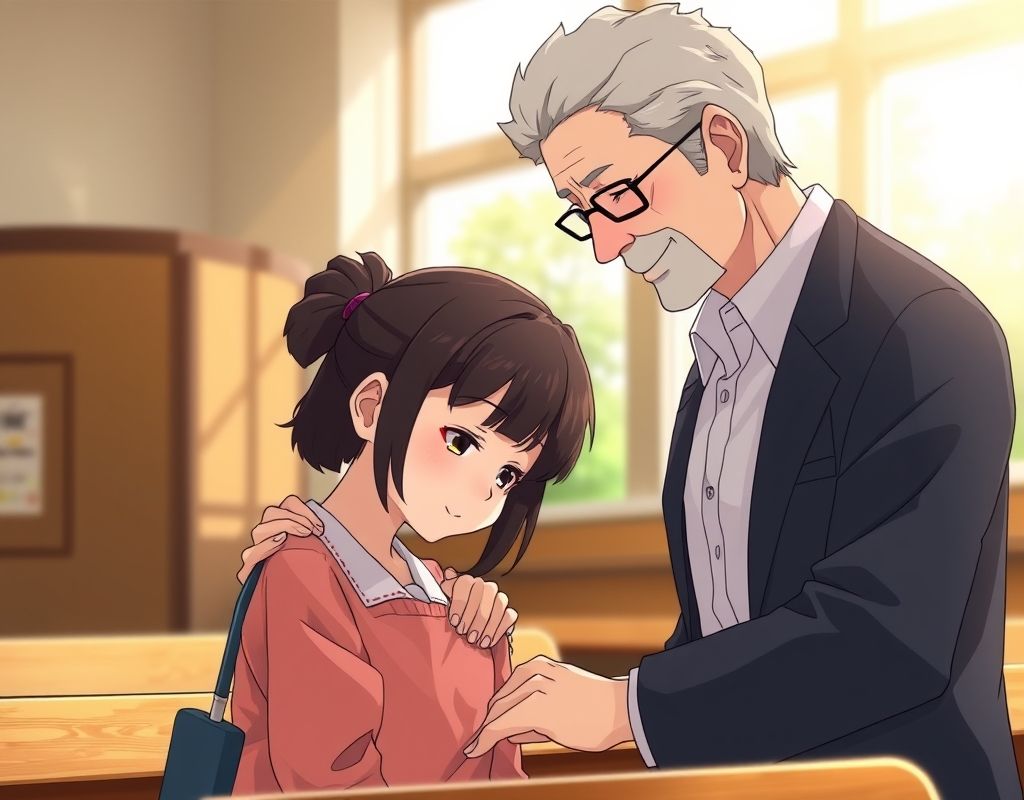
The Art of Social Debt: When You 'Can't Raise Your Head' (頭が上がらない) in Japan
Hello to all the warriors conquering life in Japan!
If you've been here for over 10 years with native-level Japanese, you've definitely felt this: there's someone—a boss, a senior colleague (先輩), or even your mother-in-law—who has helped you so much that every time you see them, you instinctively bow a little lower. You feel a profound sense of respect and gratitude, a feeling of being 'indebted' that words can hardly describe. 🤔
This is precisely when the Japanese use an incredibly rich and visual idiom: 頭が上がらない (Atama ga agaranai).
🕵️♂️ Decoding "Atama ga Agaranai"
Translated literally, it means "cannot raise one's head." It might sound negative, as if you did something wrong and are ashamed, right? But that's not it at all! In 99% of cases, this is a very positive expression of gratitude.
頭が上がらない isn't about fear or shame. It's a combination of:
- Deep Gratitude (深い感謝 - fukai kansha)
- Absolute Respect (尊敬 - sonkei)
- A Sense of Indebtedness or Obligation (恩義 - ongi)
It describes a psychological state where you've received such a significant favor from someone that you feel you're in a lower position—not because you're forced to be, but out of heartfelt respect. You can't just "hold your head high" and interact as equals, because their help was just that immense.
💼 Real-Life Scenarios Where You "Can't Raise Your Head"
To grasp it better, let's look at some examples you'll surely find familiar:
1. The Senpai (先輩) Who Guided You From Day One
This is the classic scenario. Imagine your first day at a company, completely lost. A senpai patiently taught you everything, covered for your mistakes, and even took you out for drinks to help you fit in with the team.
- Example:
「田中先輩には新人の頃から本当にお世話になって、今でも頭が上がらないんです。」 (Tanaka-senpai really took care of me since I was a rookie, so even now, I feel deeply indebted to him.)
In this case, you aren't afraid of Tanaka-san. You respect him. His help shaped your career at the company. It's a debt of kindness.
2. The In-Laws Who Always Help Out
Both you and your spouse are busy with work, and it's your in-laws who always pick up and look after your children, without a single complaint. 🙇♂️
- Example:
「子供の面倒をいつも見てもらっているので、奥さんのご両親には頭が上がりません。」 (Because my wife's parents always look after the kids for us, I'm truly and deeply indebted to them.)
This is a feeling of gratitude for them shouldering a huge responsibility, making your own life significantly easier.
3. The Friend Who Saved You from a Crisis
You were in financial trouble, and a friend lent you a large sum of money without hesitation. Or when you were going through a mental breakdown, they were there to support you and lift you back up.
- Example:
「あの時、お金を貸してくれた山田には、一生頭が上がらないだろうな。」 (I'll probably be indebted to Yamada for life for lending me money back then.)
✨ The key point here is that their action helped you overcome an extremely difficult period. This debt transcends monetary value.
💡 Why Is This Idiom So Important?
Understanding 頭が上がらない isn't just about learning a new phrase. It's about understanding a core aspect of Japanese relational culture: the concept of 恩 (On - a debt of gratitude).
The Japanese place great importance on relationships and the balance of giving and receiving. When someone bestows an "On" upon you, you feel a persistent need to repay it (恩返し - ongaeshi).
When that debt of kindness is so large that you feel you can never fully repay it, the feeling of 頭が上がらない emerges. It acknowledges an "imbalance" in the relationship, but one that is built on respect.
👉 How to Use It
- When to use: When you want to emphasize immense and long-lasting gratitude for a past action or ongoing support.
- With whom: It's often used when talking to a third party to describe your relationship with the person who helped you. (e.g., telling colleague B about senpai A).
- Can you say it directly? You can, but it's quite rare. It would be an extremely sincere and moving confession. More often, people use softer phrases like 「本当にお世話になりました」.
Next time you want to express your deepest gratitude, instead of just saying 「ありがとうございます」, try thinking about the people towards whom you truly feel 頭が上がらない. Understanding this feeling will help you connect more deeply with those around you and truly grasp relationships the Japanese way.
So, how about you? Is there anyone you feel 頭が上がらない towards? 😉
Thẻ liên quan:
Lan tỏa kiến thức
Chia sẻ những điều hay ho với bạn bè